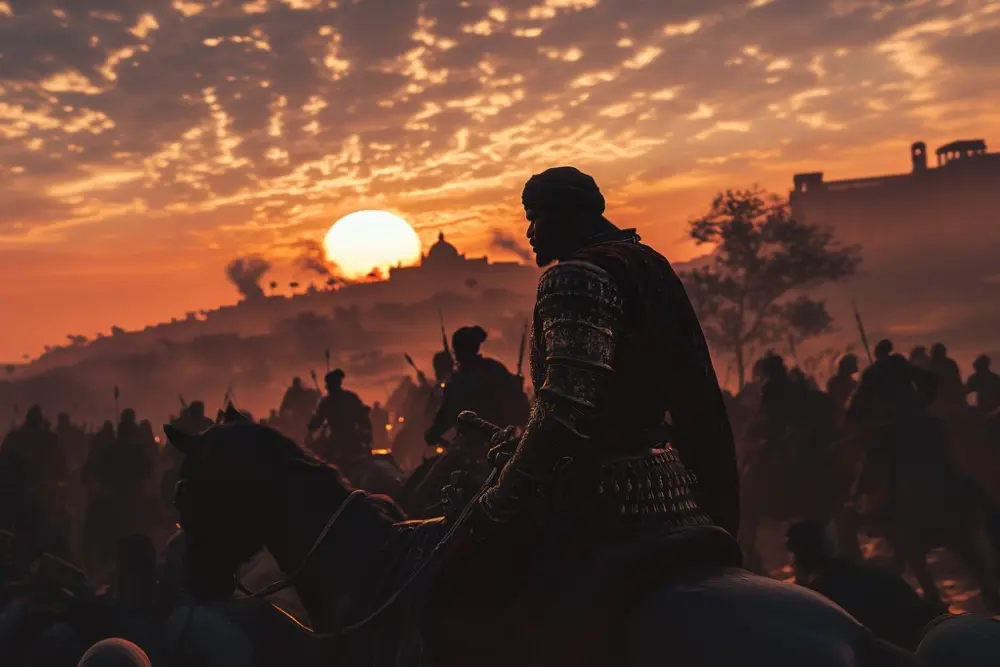It is close to a decade since “Baahubali – The Beginning” shifted the paradigm for how a South Indian film should have been made and might normally have performed – the Telugu and Tamil-language fantasy actioner achieved nationwide distribution, broke records for international performance, supercharged the stardom of its leads and, naturally, sparked a sequel – but its producer Shobu Yarlagadda and his Arka Mediaworks are now thinking on an even grander, international scale.
Yarlagadda is using the platform of this week’s Film Bazaar in Goa to test the market for his upcoming, upscale TV show “The Age of Deccan.” He pitches it as boasting “a protagonist of African origin and a world set in medieval India, that thematically unites two continents and makes it a compelling Indian original series destined for a global audience.”
“The Age of Deccan” will focus on the reality and brutality of the history, exploring these through: war, politics, vice, vengeance and sex; the protocols and hierarchies of the royal court; strategies and measures of medieval warfare; indulgence and abuse of ultimate power; territorial pride and assimilation.”
Popular on Variety The fact-based story tracks Ambar, a man of African origin who was trafficked as a slave to India in the early 16th century. He managed to pull himself out of serfdom first as a fighter, then as a military strategist and later as a government minister who sought to push back the Mughal influence and unify Deccan India. He is an important historical figure best known as Malik Ambar, with ‘Malik’ an honorary title.
“His life journey as he moves from slave to soldier to become a power broker and king maker is really fascinating and what we want to portray,” says Yarlagadda.
“He had such a complete life. He died at the age of 80, where none of the Mughal emperor were sitting at Agra, their capital. They couldn’t make their way into decade because of this one man. He did not have a royal lineage and could not become a king, per se, but put someone on the throne, and guarded the region,” says Kishore Kedari, responsible for developing the story and designated as creative producer.
Such is the scale of Malik Ambar’s achievements and personality – in later life he became a patron of the arts and promoted architectural developments – that “The Age of Deccan” is conceived as building up to and running for multiple seasons.
Distinguished Telugu film director, Krish Jagarlamudi is attached as the show’s lead-off director, with other helmers still to be attached.
“We have detailed outlines for the first season, which we have structured as 12 episodes of 45 minutes each, though that could be broken into six and six, as that is what the current trend is these days,” says Yarlagadda.
“We see this ultimately as five or more seasons, with the first one covering his life as a slave, through becoming a free man, and first making a mark within his Sultanate and becoming a king-maker,” says Yarlagadda. “Where Ambar becomes Malik.”
“It is hugely ambitious,” says Kedari. His point is underlined by Yarlagadda’s estimate of the per-episode budget of $2.5 million-$3 million.
“The idea of taking it to the coproduction market, is to find a producing partner who can get on board with the writing and to attach a show runner and develop this further with us,” says Yarlagadda.
An international-scale independent partner and financier is also part of the pair’s wish list. “This story has an emotional connect that will appeal to a larger international audience, and so we are looking for a partner, not necessarily a streamer, perhaps like Fremantle or Fifth Season, which could bring in that different perspective.”
“Unlike how some Indian historical films have often been made with a sense of glorification and glamour, with ‘Deccan’ we promise an unbiased, gritty and realistic portrayal that is consistent both in writing and making,” say Yarlagadda and Kedari.
They believe that this approach will win over Indian audiences as well. “While there is a section that likes the glitz and glamor, there are others who will appreciate the rawness, the nativity and the grittiness, that we are planning.”
Popularly known simply as ‘Krish,” Jagarlamudi made his directorial debut with the critically acclaimed “Gamyam” in 2008, which earned him multiple awards, including the Nandi Award for best director. He is known for blending meaningful narratives (often those with historical elements) with commercial appeal and an understanding of human emotions. His filmography includes Vedam, Krishnam Vande Jagadgurum and Kanche.
In Hindi-language Bollywood, he also made a mark with “Gabbar is Back” and the historical epic “Manikarnika: The Queen of Jhansi.”

 Italian
Italian







